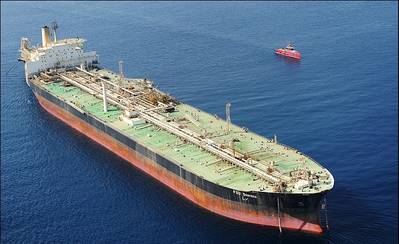Iran plans to list its national tanker company to raise badly needed cash to upgrade its massive fleet and replace older vessels, as the middle east country prepares for an aggressive return to the global oil market.
The country emerged from years of economic isolation last weekend after crippling sanctions were lifted in return for Tehran complying with steps to curb its nuclear ambitions.
Iran has one of the world's biggest tanker fleets, but many of the ships are ageing and require valid insurance, testing, inspection and certification, known as ship classification, to be able to ply international waters again.
Nasrollah Sardashti, the commercial director of the National Iranian Tanker Company (NITC), said his company was in talks with all leading insurance and classification firms, including Lloyds, DNV GL and Bureau Veritas.
"We are in talks with insurance and with classification societies (and) ready to class our ships," he said by telephone from Tehran.
Shipping sources say NITC has more than 40 tankers out of a fleet of around 70, that are new and modern enough to export oil once they receive classification, which could be achieved within weeks.
But the years of sanctions mean that Iran needs cash to modernize 20 large tankers within the next 2-3 years in what would be one of the biggest shipping orders of the past years, worth up to $1.5 billion based on average prices for new tankers.
To raise money, Tehran is planning a public listing of NITC.
"We are planning to list NITC first on local exchanges and then we will go for overseas listing to raise funds," said Sardashti, adding that it still needed to obtain board approval.
Iran has the world's fourth-biggest proven oil reserves but its exports have slumped from a pre-sanctions peak of over 3 million barrels per day (bpd) to little over 1 million bpd as the restrictions left it with only a few customers, largely in Asia.
Big Party
In a depressed global shipping sector, Iran offers a rare business opportunity.
And in a sign of this appetite, foreign shippers and brokers flocked to Tehran last week to attend NITC's 60th birthday party on January 17.
"650 people attended the anniversary, 350 from Iran and 300 from overseas. Almost all international shipping companies and brokerage firms were there," said Sardashti.
NITC says it has a fleet of 69 tankers, 66 of which are crude carriers, with a total of 15.5 million deadweight tonnage (DWT).
"We don't have any plan to expand the size but we do have the plan for fleet renewal to replace some of the older ships," Sardashti said.
Shipping sources estimate NITC's needs to replace over 20 tankers, including Very Large Crude Carriers (VLCC) capable of carrying 2 million barrels of oil, and Suezmax tankers capable of carrying 1 million barrels.
"We need approvals and then we start placing orders in 2016... it takes 2-3 years to take delivery of ships," Sardashti said.
Delivery of relatively new second-hand vessels would be much faster, possible within two months.
In Iran's tanker fleet, 11 VLCCs and Suexmaxes were built in 1999 or earlier, according to the Equasis shipping database. A further 10 were built in 2000.
Although all the tankers are double hull and comply with international regulations, they are getting old as the life of a trading VLCC is 15-17 years.
Shipping sources said most South Korean ship builders, including Hyundai Heavy Industries, Daewoo Shipbuilding & Marine Engineering and Samsung Heavy Industries, would likely bid for new contracts.
Yards in China that could participate include Dalian Shipbuilding and Shanghai Waigaoqiao Shipbuilding.
Current prices for a new VLCC is $93-$94 million, according to shipping broker Clarkson.
Beyond a potential listing, Sardashti said that he hoped NITC would receive 70-80 percent international financing for fleet modernization either from European or Asian lenders.
But Iran could still face legal uncertainties. These include a lack of a dollar clearing, the absence of an established mechanism for non-dollar sales, insufficient clarity on ship insurance and a reluctance of banks to provide letters of credit to facilitate trade with Iran.
(By Nidhi Verma and Keith Wallis; Writing by Henning Gloystein; Editing by Ed Davies)

















